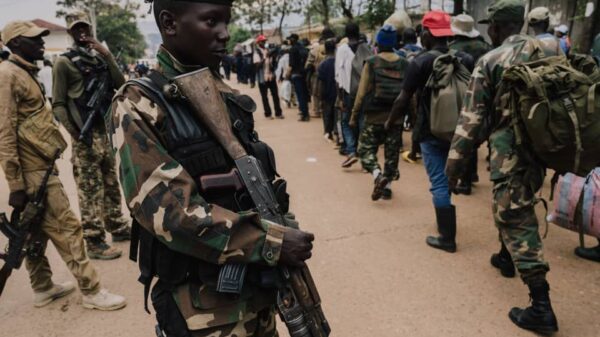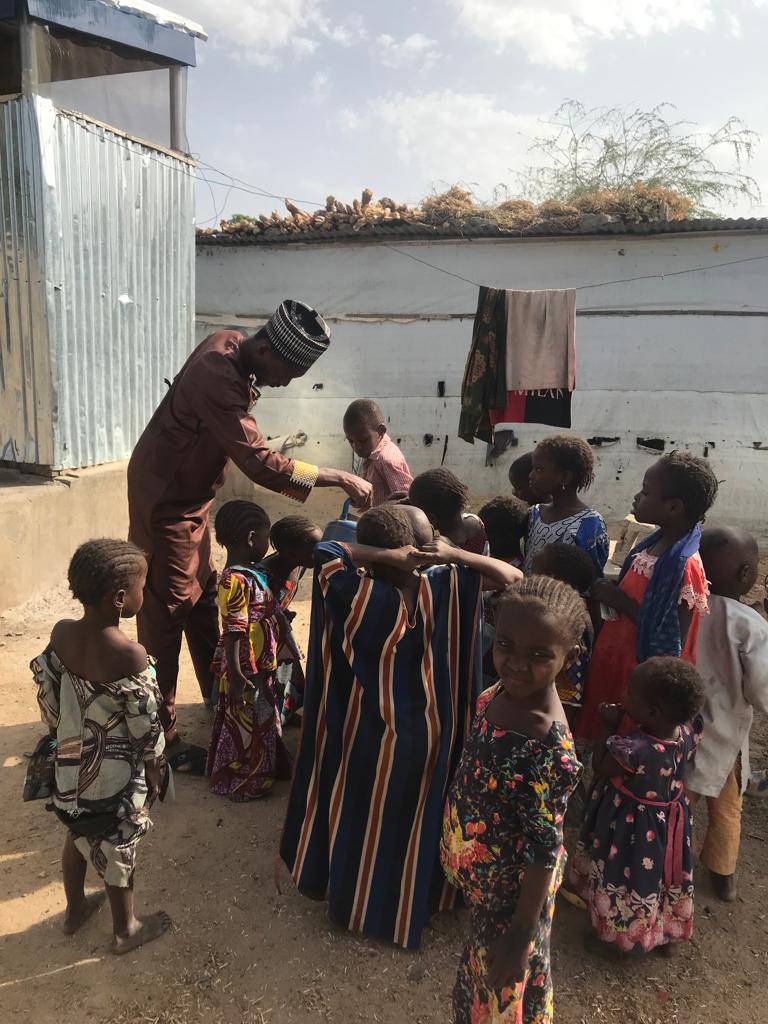Adnan Adams Mohammed, reporting from Maiduguri
As Boko Haram, ISWAP insurgency ease in some parts of the North-Eastern Nigeria (Borno, Yobe and Adamawa States), the next ‘deadly epidemic’ is hunger and malnutrition.
The insurgent attacks, which have lasted for over 13 years displaced and relinquished millions of households of their livelihoods (farms, livestock and businesses), worsened the already daring poverty and hunger levels in those part of the country.
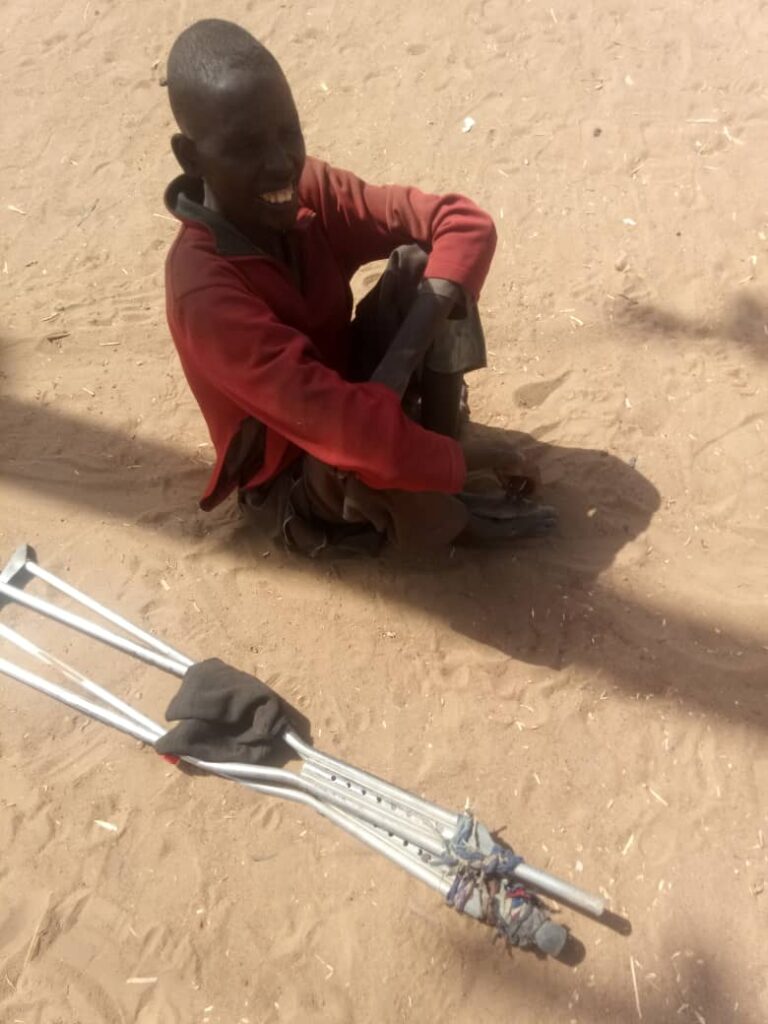
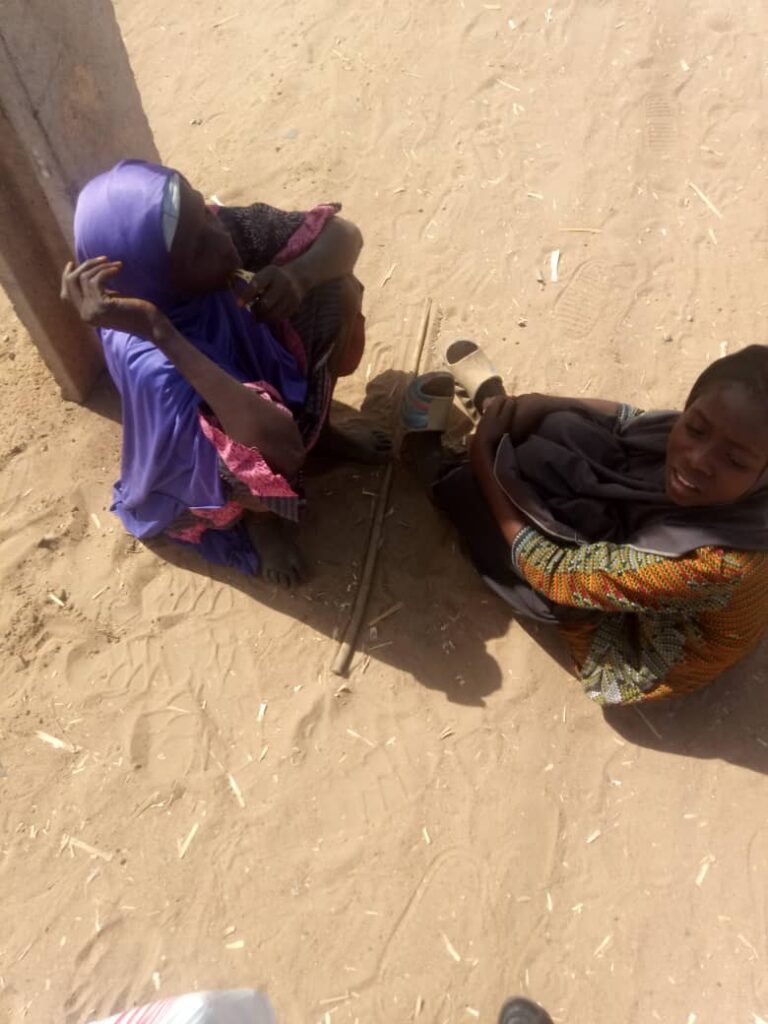
During my fact finding mission visit to one of the affected States, Borno State, last week, it was very sad to notice millions of people are facing the painful consequences of a deteriorating food security and nutrition crisis. I was forced to make food donations (which was not part of my plan for the visit) to one of the Internally Displaced Persons (IDPs) camp, Ajere II IDP Camp, after contending with their living conditions, especially seeing the starving faces of the children at the camp and within the communities within the metropolis.
According data from the World Food Programme (WFP); 8.4 million people are food insecure in northeast Nigeria, and over 3 million people internally displaced in Borno, Yobe and Adawama states. It estimates also that, about US$1.3 billion is required to reach 6 million people in north-east Nigeria with humanitarian assistance in 2023, an increase of 18 percent from the 2022 funding requirements.
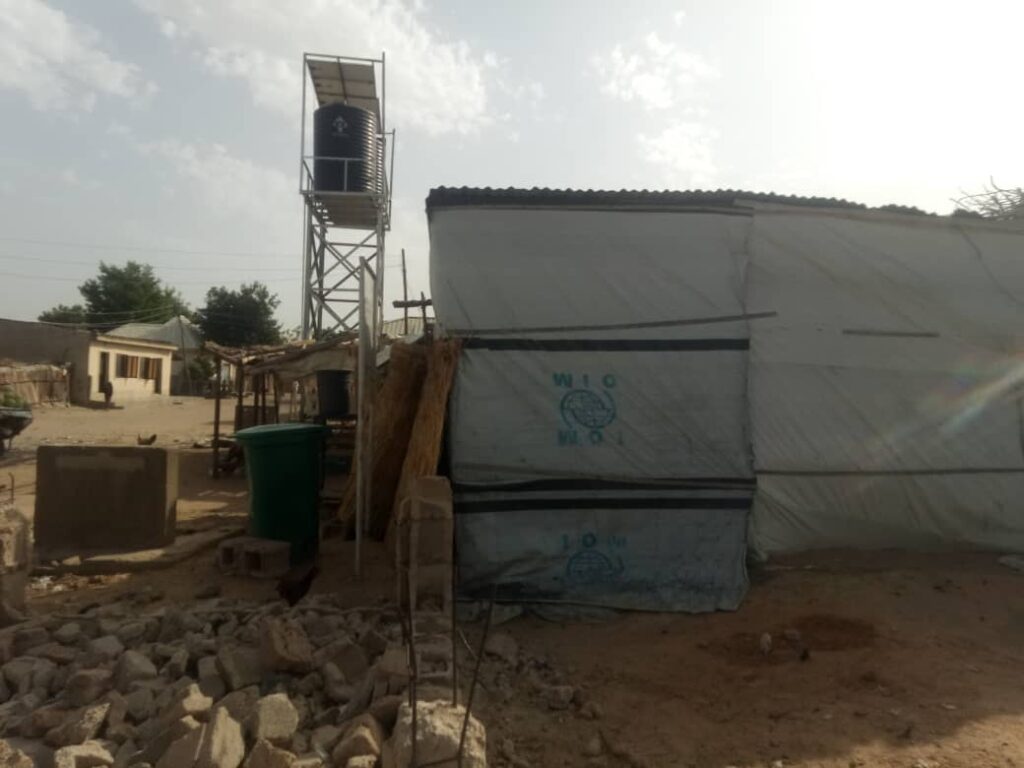

“The lives of some 690,000 children are at risk!”, United Nations Resident and Humanitarian Coordinator for Nigeria, Matthias Schmale, shared his worry at the launch of the ‘Nigeria Humanitarian Response Plan 2023’ document on February 16 in Yola, Adamawa State. “I am, for example, deeply concerned about severe acute malnutrition among children which is expected to more than double compared to last year.”
According to the UN, food insecurity means not knowing when or where your next meal will come from. It means, in essence, not being able to meet the basic needs for yourself or your family. As a result, countless families are forced to make alarming sacrifices to survive. Many, particularly children, are at risk of not making it through the lean season.
It devastating experience to know that, people facing extreme or catastrophic needs have increased from 5.5 million people last year to over 6 million according to the
“….some 6 million people. These are people with severe, extreme or catastrophic needs. This is an increase from 5.5 million people last year.
“For the first time we are also seeing some 250,000 people who are experiencing a catastrophic situation, meaning that their coping mechanisms are exhausted, and they are on the verge of collapse. Needless to state, my colleagues and I are very worried about their immediate and long-term future.”
Meanwhile, it is very unfortunate to know that, funding for humanitarian work in the north-east of Nigeria has remained stagnant in the last two years, as indicated by the UN Resident Coordinator.
In spite of these catastrophic condition of the people which should be taken the full attention of the State and Federal government officials on how to tackle the situation to save lives of the people they are to serve, the Adamawa State Governor Ahmadu Umaru Fintiri, in a statement issued on February 28, announced the suspension of the activities of local and international NGOs throughout the State until March 15, 2023 on allegations of “dabbling into politics in the name of providing humanitarian assistance to the people”. With the postponement of the second round of elections to March 18, the Adamawa State Government announced an extension of the suspension of NGOs’ activities until after the election. High-level advocacy efforts are ongoing for the essential work of humanitarians to continue for the well-being and safety of all people in need in Adamawa.
A clear sign that, winning the election was more important to the Governor, a supposed servant of the people more than the lives of the kingmakers. Again, instead of complimenting and encouraging the effort of the NGO workers and volunteers most of whom do not even have direct family relations from the affected States and the country at large, yet risking their lives and leaving their family back home to sleep in the middle of terrorism attacks, rather the politicians are seeing them as enemies to electoral fortunes.
During my fact finding mission to Borno State from March 11 to 18, 2023, I visited one of the IDPs, that is, Ajere II IDP Camp at Kushari, the camp chairman spoke to us
Narrating how unbearable the situation at the camp is for them for the nine years.
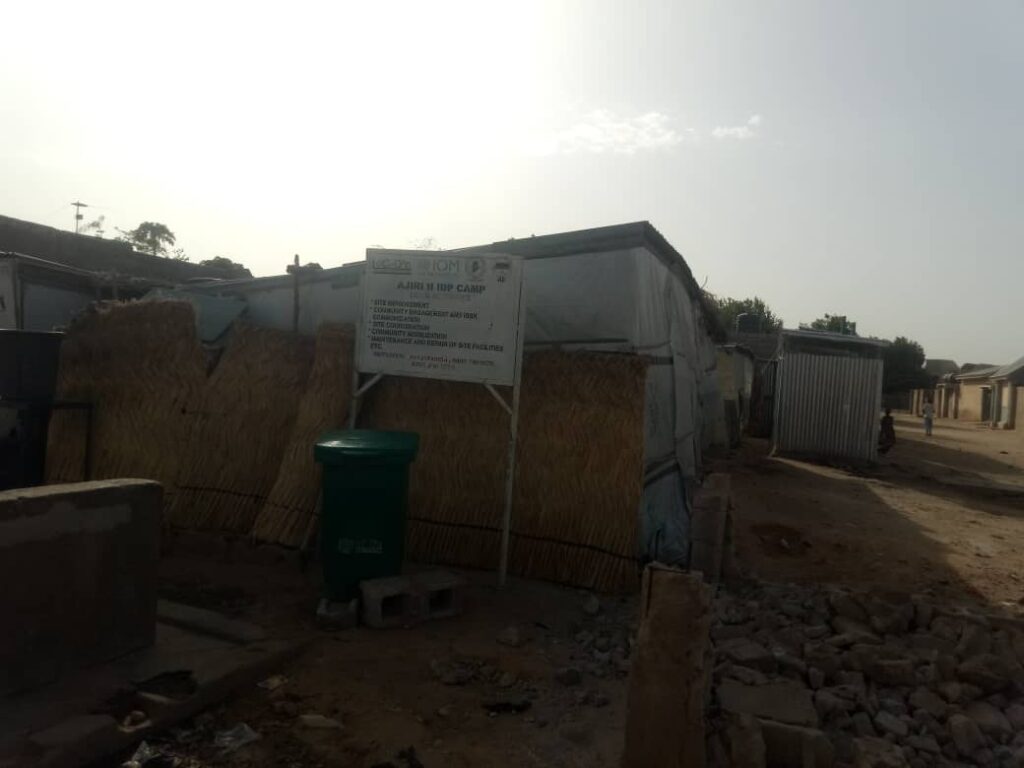
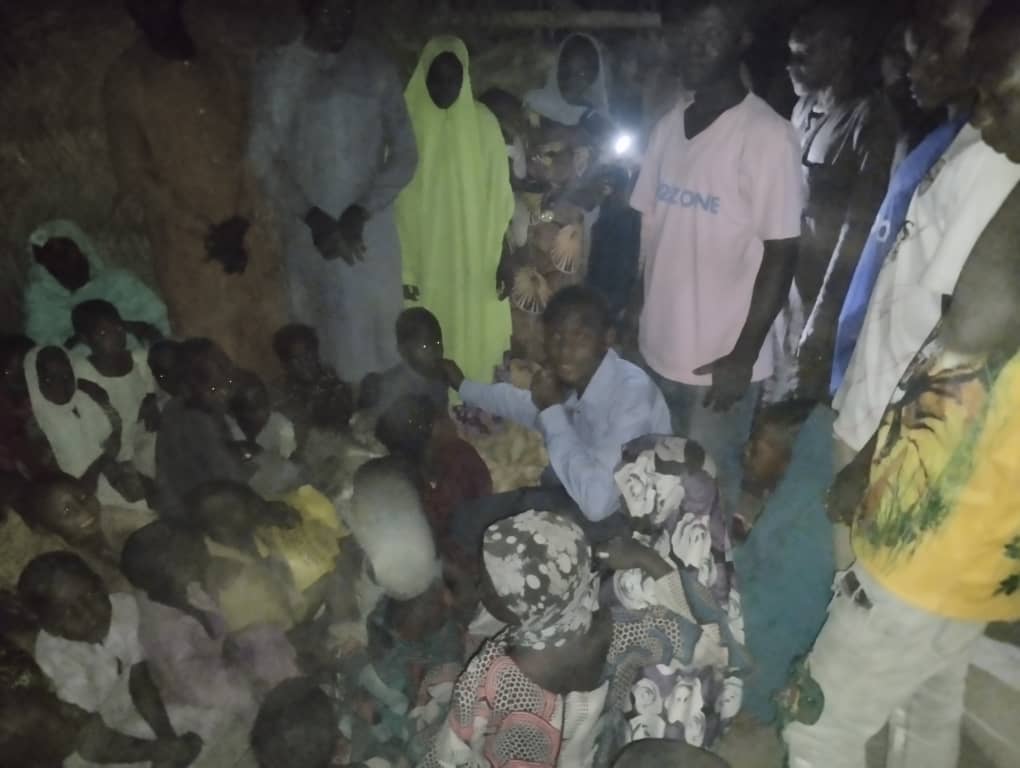
“Since we came, eating has been a problem for us. Even the firewoods we go to the bush to fetch to come and sell, the soldiers sometimes deny us from entering into the bush for fear that we might be attacked by the insurgents.
“Life is unbearable, there is still no peace in our villages (Ajere, under Kundiga LGA), it is dangerous area, Boko Haram still controls there just 30km (about 1hour journey by transport) from the Maiduguri metro.
“We don’t get food provisions, it is only once WFP brought us food. For (Kushari A camp ) they used to be getting intermittent provisions from Save the Children.
“Now, that the Ramadan fasting is coming we have no provisions. We are wondering how to survive. Since apart from fetching firewood to sell, we have to be weeding in farms for others to be able get some. And in fasting we can’t weed due to the weakness of the body.”
Also, we spoke to one of the camp members, a mother of five, who lost one child to Boko Haram forced abduction. Fatima (not her real name) narrated her experience at the camp how they were attacked by the Boko Haram insurgents.
“We were sitting when they came to start attacking by putting in our buildings, we started running with children and family that night. Some couldn’t make as they killed by the Boko Haram. Some burnt in their rooms. On our way going we stayed somewhere in a different for the next day before we continued our journey to Maiduguri.
“We don’t have what to eat. Sometimes our husbands have to go look for firewood outskirt of the town in the bushes to bring to sell in town. Sometimes the military taskforce stops them from entering into the bush due to fear that, they might be attacked by Boko Haram. Also, sometimes when their husbands are able to get some of the firewoods, they do not get their money on time after selling due to transfer network challenges. The highest they sell is around 700 naira per each trip to the bush.
“As at the time of our visit to the camp, 4pm, the her husband had just returned from the bush, but they are yet to look for transfer to cash the money from the sell of the firewood to be able to buy foodstuffs for cooking for the day as they have not eaten since morning.
“We have no means of trade since we do not have capital. What to eat is even a problem then for us to save some for trade capital.
“I have five children and am here with my husband. Among the five children, one was taken away by her cousin back to Kundiga village were they were displaced but have since not returned. They suspect Boko Haram have abducted them.”
Their striking narration forced us to make donation of food items to the camp which carter for them for a week.
Consequently, also speaking to some Information Officers at the Borno Sate Federal Secretariat, they confirmed the daring food insecurity situation the people are facing. Juxtaposing that, the situation is constantly contributing to skyrocketing food inflation due to the insufficient food supply from the previous sources where their foods come from as most of the farmers are afraid to go their farms within the local government areas where the insurgents are hiding out.
“Malnutrition and poverty have increased now within affected States and LGAs”, one of the Information Officers who spoke to us off-record said.
“It is amazing to know how NGOs and Govt agencies are destroying and burning foods and provisions meant for distribution to displaced people in affected areas with excuses that they have expired. But, one will wonder why all these foods were kept without sharing them until they are expired.
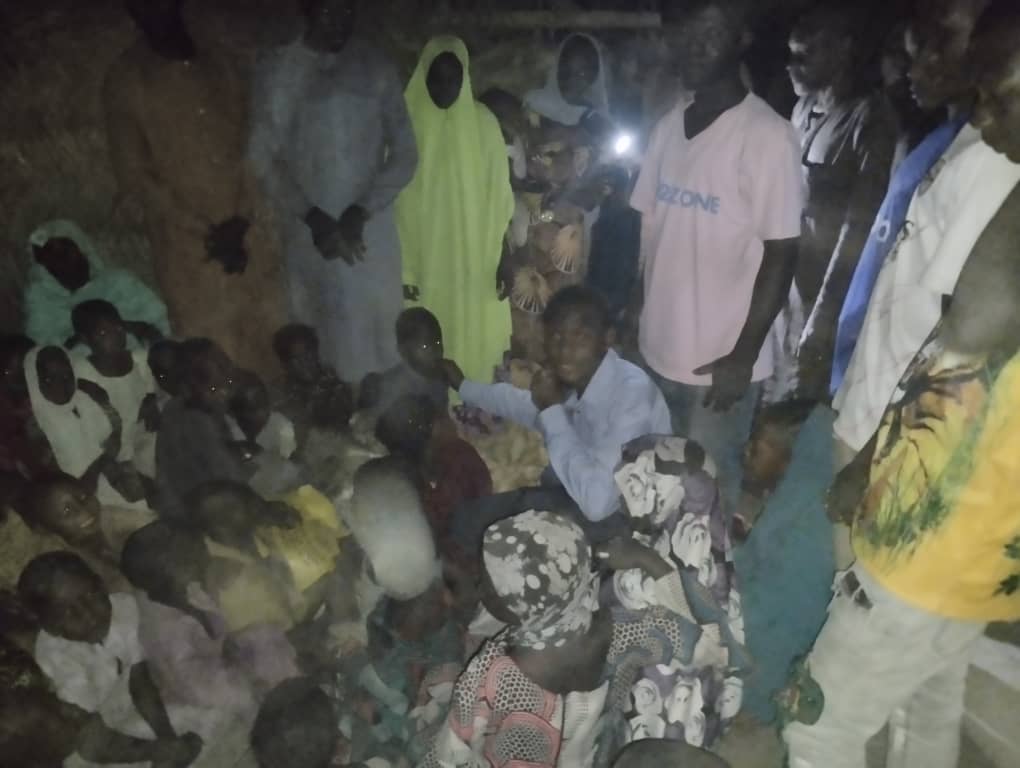
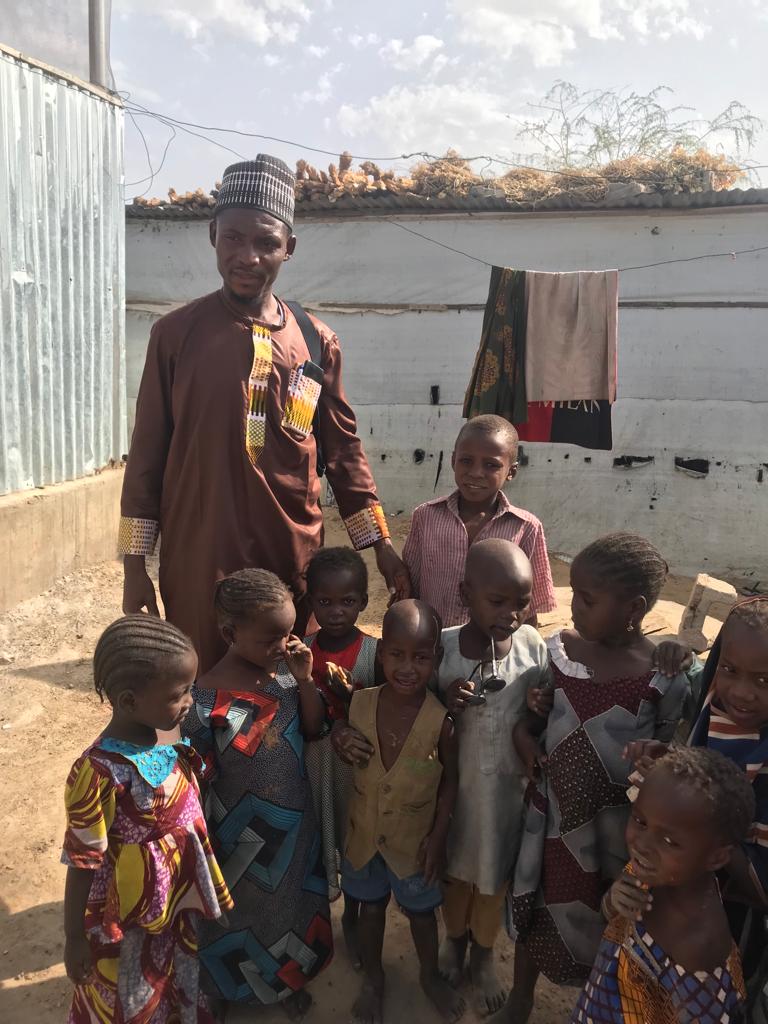
“All these food are destroyed at the peak of the crisis contributing to the high food inflation till now, because farmers were not going to farm so no food were coming to the market resulting in food scarcity.”
Credit to; African Perception (sponsorship of the trip), Fatima Majewa, Maira Allamin and Kalthum Bukar for their immense support during my fact finding mission to the Borno State.









